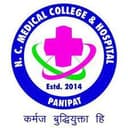Bachelor of Science (BSc) in Cardiac Laboratory Technology
OR
Prepared by Docthub Courses Team ∣
Last updated on 09 Aug 2024
Overview
The Bachelor of Science (B.Sc.) in Cardiac Laboratory Technology is a specialized undergraduate program designed to equip students with the necessary knowledge and skills required to work in cardiac care facilities.
Bachelor of Science in cardiac laboratory technology in India covers various aspects of cardiac diagnostics, treatment, and patient care within a laboratory setting.
The program offers a blend of theoretical knowledge and practical training to prepare students for careers in cardiac healthcare.
Students learn about the anatomy and physiology of the cardiovascular system, diagnostic procedures, medical instrumentation, and patient care techniques specific to cardiac conditions.

Table of Content
Highlights
| Details | Bachelor of Science (B.Sc.) in Cardiac Laboratory Technology |
| Level | Graduation Degree |
| Duration | 3 Years |
| Exam Type | Written/Practical |
| Course Fees | INR 25,000-5,00,000 |
| Min. Qualification Requirement | 10+2 or equivalent from a recognized board |
| Average Salary | INR 3-5 lakhs |
| Selection Process | Entrance Exam/Merit-based |
| Min. Aggregate Score | 50% or more in 10+2 in science stream |
Eligibility
Candidates interested in pursuing a Bachelor of Science in cardiac laboratory technology in India typically need to fulfill the B Sc in cardiac laboratory technology eligibility criteria:
Completion of higher secondary education (10+2) with a science background (preferably with Biology, Chemistry, and Physics).
Meeting specific minimum academic requirements set by the institution offering the program.
Some institutions may also conduct entrance exams or interviews during the admission process.
Duration
The duration of a B.Sc. in Cardiac Laboratory Technology program in India is typically 3 years.
Fees
The Bachelor of Science in cardiac laboratory technology Fees in India can vary widely depending on the college or university you choose. The average course fee can range between INR 25,000 and INR 5,00,000 for the program's duration.
Who Should Do This Course?
A bachelor of science in cardiac laboratory technology in India is ideal for individuals interested in healthcare, particularly in cardiology.
It suits students who possess strong analytical skills, attention to detail, and a compassionate nature towards patient care.
Additionally, those with a knack for operating medical equipment and technology would find this program rewarding.
Why Study This Course?
Studying Bachelor of Science in cardiac laboratory technology in India offers several compelling reasons:
- Fulfillment of contributing to improving cardiac health outcomes.
- High demand for skilled cardiac technologists in healthcare settings.
- Opportunities for professional growth and specialization in a rapidly evolving field.
- Competitive salaries and job stability in the healthcare industry.
- Personal satisfaction derived from assisting in diagnosing and treating cardiac conditions.
Admission Process
The Bachelor of Science (B.Sc.) in Cardiac Laboratory Technology Course Admission Process in India can vary between institutions, but it generally follows a set of common steps:
Eligibility Check:
Candidates can pursue a Bachelor of Science (B.Sc.) in Cardiac Laboratory Technology after 12th or equivalent study from a recognized board.
Application Submission:
Complete and submit the application form provided by the institution. The application form may be available online on the institution's official website or can be obtained in person.
Documentation
Prepare and submit the required documents, which may include:
High school transcripts and certificates.
Proof of identity.
Passport-sized photographs.
Completed application form.
Any other documents specified by the institution.
Entrance Exam (if applicable):
Some institutions may require applicants to take an entrance exam to assess their readiness for the program. The format and content of the entrance exam can vary.
Interview (if applicable):
In some cases, applicants may be required to participate in an interview. The interview may assess your motivation, communication skills, and suitability.
Admission Offer:
If selected, you will receive an admission offer from the institution. The offer letter will provide details about the program, including the start date, course duration, and any other relevant information.
Entrance Exam
The admission process for B.Sc. in Cardiac Laboratory Technology programs in India can vary from college to college.
Some colleges may offer direct admission based on merit, while others may require you to take an entrance exam.
Some of the common entrance exams for paramedical courses include:
- All India Institute of Medical Sciences (AIIMS) Entrance Exam
- National Institute of Paramedical Sciences (NIPS) Entrance Exam
- Jawaharlal Nehru Institute of Paramedical Sciences (JNIPMS) Entrance Exam
Syllabus
The Bachelor of Science (B.Sc.) in Cardiac Laboratory Technology syllabus varies depending on the specific university or institution.
However, the general structure and core subjects of the program are typically as follows:
| Year/Semester | Courses |
Semester 1: Human Anatomy & Physiology Biochemistry Microbiology Fundamentals of Computer Applications Communication Skills Semester 2: Pathology Pharmacology Introduction to Cardiac Technology Basic Electronics Medical Ethics & Law Semester 3: Electrocardiography (ECG) Cardiovascular Physiology & Pharmacology Hematology & Blood Banking Cardiac Rehabilitation Research Methodology Semester 4: Echocardiography Cardiovascular Imaging Techniques (X-Ray, Fluoroscopy) Cardiac Catheterization & Intervention Advanced Cardiac Life Support (ACLS) Clinical Practice – I Semester 5: Holter Monitoring & Event Recorders Invasive Electrophysiology Pacemakers & Defibrillators Cardiac Surgical Procedures Clinical Practice - II Semester 6: Quality Control & Management in Cardiac Lab Recent Advances in Cardiac Technology Project Work/Seminar Clinical Practice - III |
Top Private Colleges
Some of the top private B Sc in Cardiac Laboratory Technology Colleges in India are:
- GGS College of Modern Technology, Chandigarh
- MGM School of Biomedical Sciences, Navi Mumbai
- Sri Ramachandra Institute of Paramedical Sciences, Chennai
- Manipal Academy of Higher Education, Manipal
- Datta Meghe Institute of Higher Education and Research (DMIHER), Wardha
- SRM Institute of Science and Technology, Chennai
- Amity College of Nursing, Noida
- Christian Medical College, Vellore
- St. John's Medical College, Bangalore
- Symbiosis School of Health Sciences, Pune
Top Government Colleges
Some of the top government B Sc in Cardiac Laboratory Technology Colleges in India are:
- All India Institute of Medical Sciences (AIIMS), New Delhi
- National Institute of Mental Health and Neurosciences (NIMHANS), Bangalore
- Post Graduate Institute of Medical Education and Research (PGIMER), Chandigarh
- Jawaharlal Institute of Postgraduate Medical Education and Research (JIPMER), Puducherry
- Maulana Azad Medical College, New Delhi
- Sri Ramachandra Institute of Higher Education and Research (SRMC), Chennai
- King Edward Medical College (KEM), Mumbai
- Seth GS Medical College, Mumbai
- Grant Medical College and Sir JJ Group of Hospitals, Mumbai
- Institute of Medical Sciences and SUM Hospital, Bhubaneswar
Scope
The scope for graduates of this program is promising, with opportunities available in various healthcare settings such as hospitals, diagnostic laboratories, cardiac clinics, and research institutions.
Graduates can work as cardiac technologists, electrocardiogram (ECG) technicians, or cardiac sonographers, or pursue further studies for specialization in areas such as echocardiography, cardiovascular perfusion, or cardiac catheterization.
Further Study Options
After completing a B.Sc. in Cardiac Laboratory Technology, graduates can pursue advanced degrees or certifications to enhance their career prospects. Some further study options include:
- Master’s degree programs in cardiovascular technology or related fields.
- Certification programs in specialized areas such as echocardiography or vascular technology.
- Continuing education courses to stay updated with advancements in cardiac care technology and procedures.
Career Opportunities After This Course
Bachelor of science in cardiac laboratory technology jobs offer diverse career opportunities, including:
- Cardiac Technologist
- Electrocardiogram (ECG) Technician
- Cardiac Sonographer
- Cardiovascular Technician
- Cardiac Catheterization Technologist
- Research Assistant in Cardiology Studies
- Healthcare Administrator in Cardiac Care Facilities
- Educator or Trainer in Cardiac Technology Programs
Salary
The average starting Bachelor of science in cardiac laboratory technology salary in India is around INR 3.3 LPA.
However, this can vary depending on factors such as location, experience, and the specific job role. With experience and additional qualifications, you can expect your salary to increase.
Explore colleges for this course
Quick Go Links

Explore this course by location..
by States
by Cities
Related Job Roles
Related Job Vacancies
View All 18 Jobs

FAQS
What is a Bachelor of Science in Cardiac Laboratory Technology?
A Bachelor of Science in Cardiac Laboratory Technology is a specialized undergraduate degree program that focuses on training students in the technical and practical aspects of cardiac care, including diagnostic testing, patient care, and medical equipment operation within a cardiac laboratory setting.
How much does a Bachelor of Science (B.Sc.) in Cardiac Laboratory Technology course cost?
The cost of a Bachelor of Science in Cardiac Laboratory Technology can vary widely depending on the institution and location. The average course fee can range between INR 25,000 and INR 5,00,000 for the program's duration.
How many years is Bachelor of Science (B.Sc.) in Cardiac Laboratory Technology?
The duration of a Bachelor of Science in Cardiac Laboratory Technology program is typically around 3 years, like many other undergraduate degree programs.
How do I get admission to the Bachelor of Science (B.Sc.) in Cardiac Laboratory Technology?
To get admission to a Bachelor of Science in Cardiac Laboratory Technology program, you would typically need to meet the admission requirements of the specific university or college offering the program.
What are the career opportunities after completing BSc cardiac technology?
After completing a BSc in cardiac technology, career opportunities may include roles such as cardiac technologist, cardiovascular technician, ECG technician, cardiac sonographer, or working in cardiac catheterization labs, hospitals, clinics, or research facilities.
Related Course titles

Qualifications
12th Science PCB
Related Specialty
Medical Laboratory Technology (MLT)





